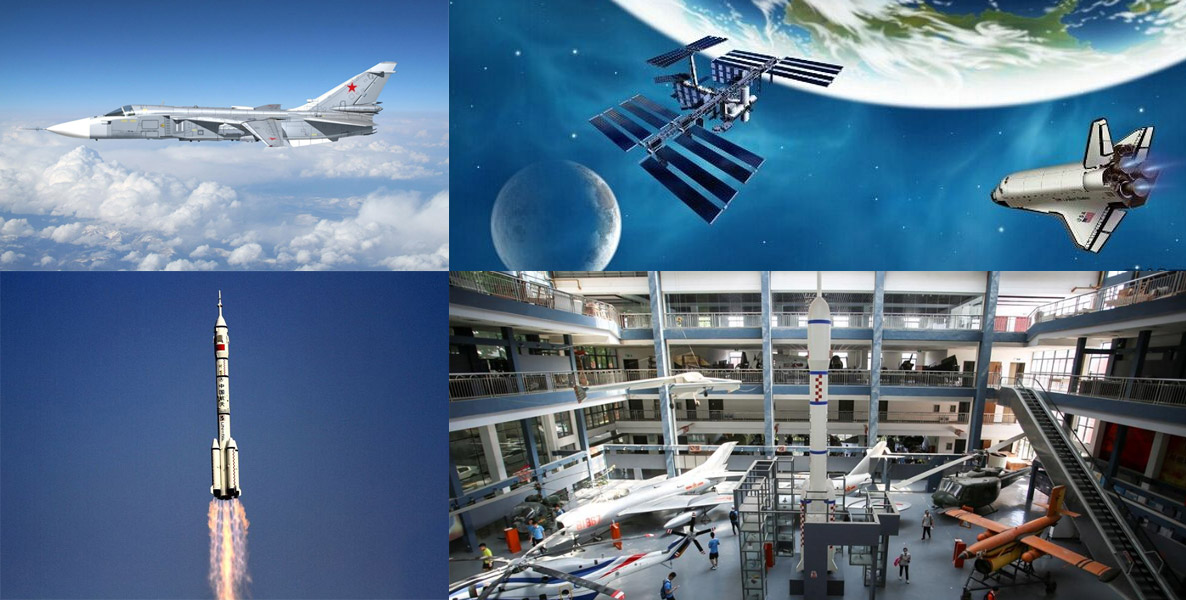How Is Titanium Used in Aerospace/Aeronautics Applications?

How is titanium used in aerospace/aeronautics applications?
Titanium was discovered in 1791 and has since become a hot product in the metallurgy manufacturing industry. Until the start of the Cold War, titanium was yet to begin its entry into the military and aerospace/aeronautics industries. Fast-forward to today, substances such as titanium tubing are a prime material in the aerospace industry due to the high value of its alloy products. Titanium has many properties that make it a highly coveted item in the aeronautics space. Some of such properties include its high strength-to-weight ratio, great resistance to corrosion, and performance under very high temperatures. The industry has always been looking for ways to produce lighter, more fuel-efficient airplanes. Luckily, without adding excess weight, titanium provides the strength and durability that aircraft manufacturing companies need to achieve just that. Here, we’ll look at the most common applications of titanium in the aerospace/aeronautics space. But before we get to that, let’s consider the main properties of titanium that make it so valuable in the aircraft manufacturing industry.Why titanium is a choice material in aerospace/aeronautics applications?
Weight-to-Strength Ratio: Compared to steel and aluminum, titanium is much lighter in weight. As such, it provides the much-needed strength and durability required to structure aircraft with high fuel efficiency without adding extra weight. The only lightweight metal that works well with composites is titanium. Because of their lightweight, composite materials in aeronautic engineering are beneficial. They are very important for improving fuel efficiency, as the heavier an aircraft is, the more fuel it will consume. Many composites containing aluminum and other metals are not as lightweight as titanium, making it the number one choice for composite structures in aircraft. Thermal Expansion Rates: A distinguishing feature of titanium is its high-temperature performance, a property that makes it highly reliable at different temperatures, as well as a great interface material. Its ability to withstand high temperatures also makes it a better replacement for aluminum. High Corrosion Resistance: In the aerospace industry, corrosion resistance is of great importance. Titanium is naturally resistant to corrosive elements, which eliminates the need to cover it with special corrosion-resistant paints unless the titanium is used in alloys. In the long run, titanium is a great choice when extending aircraft life becomes a priority.Application Of Titanium In Aerospace
Here are some applications of titanium in aerospace:Aircraft body
As we mentioned earlier, titanium is an excellent choice for lightweight materials. Titanium alloy is the best lightweight structural material widely used in the aircraft manufacturing industry besides steel and aluminum alloy. This is one of the reasons why Boeing has designed and sold so many fuel-efficient airplanes, including rotorcraft, rockets, satellites, and missiles, all over the world for so many years. Titanium alloy is an important structural material for aircraft fuselage and engines. Because of the lightweight titanium alloy, it is used as a body material with an excellent weight-reducing effect. The use of titanium alloy in the commercial and military aircraft field is believed to continue to rise even in the coming years.Aircraft engine
High-temperature titanium alloys are used to manufacture aero-engine compressor blades, discs, and casings. This is because these parts are typically exposed to higher temperatures than other parts in an aircraft. Hence, they require material of high specific strength and temperature creep resistance, as well as high fatigue strength and temperature working conditions (typically around 572-1112 °F). In these parts, the durability and high-temperature performance of titanium come into play.Titanium tubing
Titanium tubing is another major product used in the aircraft manufacturing industry. Besides the aircraft industry, titanium tubing is increasingly being used in many applications since stainless steel and other materials like aluminum do not give the best result in many cases. Titanium tubing has a higher strength-to-weight ratio and corrosion resistance, making it a suitable product in the aerospace industry and heat exchangers.Laser welding of titanium alloy
One of the major concerns in the aerospace industry when it comes to using titanium alloys is the advanced welding processing of titanium alloy structures. Laser welding of titanium alloys is another area of high interest in the aviation manufacturing industry.Electron beam welding of titanium alloy
Since the early 1960s, electron beam welding, an advanced high-energy beam processing method, has been applied to the welding of metals of economic interest in the aircraft manufacturing and aerospace industry, as well as in the atomic energy industry. Using reasonable welding processes, the industry has achieved electron beam welding of titanium alloy thick plates. Titanium tubing, titanium alloys, and titanium combined with composites all continue to be high-value elements in many industries, especially the military and commercial aerospace industry. To learn more about the many uses of titanium or request a supply of the highest quality titanium product directly from the manufacturer, give us a call today at (949) 407-8904 to speak with an agent at Refractory Metal.
REVIEWS
{{viewsNumber}}
Thought On "{{blogTitle}}"
{{item.created_at}}
{{item.content}}
LEVE A REPLY
Comment
Name
*
Email
*
{{item.children[0].created_at}}
{{item.children[0].content}}
{{item.created_at}}
{{item.content}}
More Replies
LEAVE A REPLY
Comment
*
Name
*
Email
*
SUBSCRIBE OUR NEWSLETTER
Your Name
*
Your Email
*
Success ! You're now subscribed
You've been successfully subscribed! Check your inbox soon for great emails from this sender.
Our Latest News






